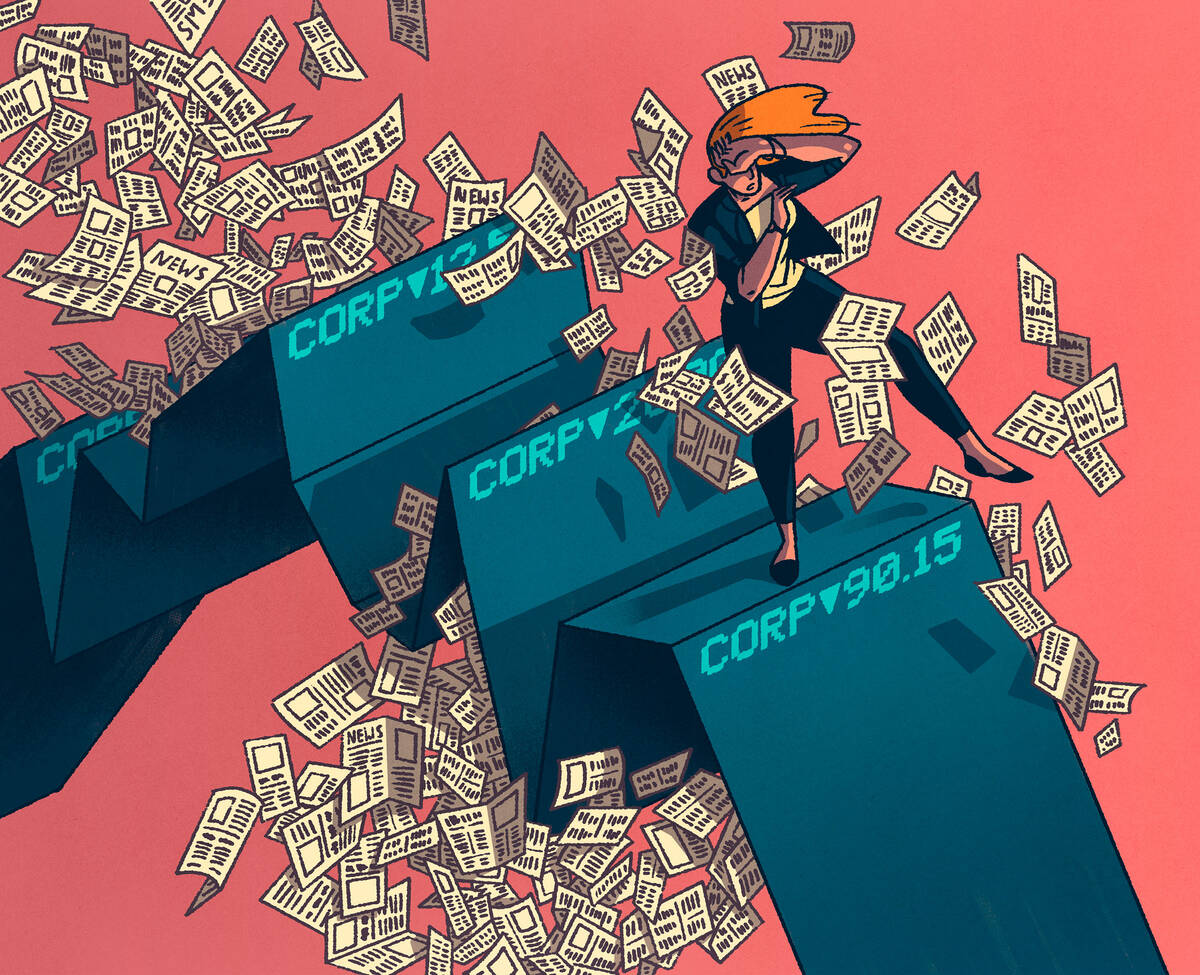A few of our favorite studies from a beloved colleague.
Honoring the Work of Ned Smith

Yevgenia Nayberg
Editor’s note: The Kellogg community is mourning the passing of Ned Smith, an associate professor of management and organizations at Kellogg whose life was cut short by cancer. Below, we’ve collected some of our favorite insights from Ned's fascinating research into the intricacies of status, networking, teamwork, and more.
When Under Threat, Status Is a Boon
Nobody wants to feel like their dream job is in jeopardy. But when things feel risky, employees who see themselves as having high social status are at a distinct advantage: for these individuals, the threat of losing their job spurs them to think expansively about networking. They report having a larger, more diverse network of contacts than when they aren’t feeling the heat of unemployment.
For individuals who perceive themselves as low-status, however, the story is quite different. “Low-status people under the same threat have exactly the opposite response; they go to dense, strong ties,” Ned Smith explained. That is, they name even fewer contacts than usual—generally those with whom they are particularly close.
This response to the threat of losing a job can be counterproductive, as casting a wide net, and reaching out to even tangential connections, is often the key to landing a new gig.
Who Networks Most? These High-Status Individuals.
Even in the absence of an immediate threat to their employment, high- and low-status people approach networking very differently.
Overall, those with high social status tend to have larger social networks and to engage in more networking behavior. But critically, the effect appears to be driven by a subset of high-status individuals—namely, those who believe that their own social status is a legitimate reflection on the quality of their ideas and work ethic. High-status people who don’t think their status signifies anything about the quality of their work network less and have smaller networks.
Why is this the case? Researchers found that individuals who attribute their high status to their own high quality—as opposed to, say, luck or the kindness of others—think that they have more to offer others, and expect others to be receptive to their outreach.
In other words, as Smith’s coauthor Jiyin Cao puts it, “Higher-status people think, ‘I’m not just networking; I’m offering value to you.’ They don’t feel like they’re taking advantage of their networking partner, which makes them come across as more authentic.”
Double Up on Diverse Teammates
When team members bring diverse backgrounds and perspectives to a problem, they are often at an advantage over more homogenous teams. But teams can lose the benefits of this diversity over time, as members’ thoughts and behaviors begin to converge. One idea? Ensure that you are doubling up on diversity—or as the researchers put it, aim for “redundant heterogeneity.”
A study of NBA teams points to the benefits of this approach. Researchers analyzed 23 years of league data, using players’ college conferences as a measure of diversity, since different conferences tend to have different playing styles. They found that having a diverse set of core players benefits teams—but too much diversity across the team reduces those benefits. The sweet spot? When the diversity in playing styles among the team’s core players is mirrored among its secondary players. Teams with this optimal mix of diversity and redundancy won 10.7 percent more games.
After all, when there is no overlap in background or working style, people can forget what makes them different, focusing instead on what they have in common. And then the important benefits of diversity are undercut.
Go Out on a Limb, but Not Too Far
How can companies signal to customers that they’re different—but not too different?
“Despite the obvious virtues of differentiating oneself, being too different can lead people to ignore you, not understand you—even penalize you if you’re so different they can’t comprehend how you’d be doing something worthwhile,” Smith explained.
Looking at the hedge-fund industry, Smith and a colleague found that companies could use their name to strike the right balance between standing out and fitting in.
Funds that had atypical strategies or portfolios compared with others in their market category were more likely to have a name that deliberately signals which category they belong to (think “Silverstone Global Macro Capital” instead of “Silverstone Capital”). Smith suspected that these firms were using their names to provide valuable information about their legitimacy to investors.
And the naming strategy appeared to work. Controlling for performance, atypical funds with these “deliberate” names grew more quickly than those without—and were more likely to make it through the Great Recession.
The findings hint at how people may make decisions about where to take their business, especially when things are tough. “It could be that in times of uncertainty, people are looking for a way to make sense of their current situation,” said Smith. “Something as simple as being able to sort of make sense of what a fund is doing based on its name might be enough to keep people invested.”
Anticipating Others’ Biases Makes Investors Behave in Biased Ways
Why are there so few women CEOs? The reasons are numerous—and complex. Take investor bias. One study has found, for instance, that when women are named as CEO to a company, its stock price drops 2 percent.
But Smith and his coauthors suspected this wasn’t the whole story. After all, there’s very little evidence that women are poor leaders—and in fact, there is growing support for the idea that there are tangible benefits to a female leadership style. So why would investors respond so unfavorably?
It comes down to how investors perceive other investors’ likelihood to react to the announcement, the researchers determined. Indeed, when there is a lot of noise in the media about a woman being appointed as CEO, stock prices drop. But in those instances where media coverage is scant, the appointment of a woman is actually viewed positively. (On the contrary, widespread media coverage of male CEOs boosts stock prices.)
In other words, the market will reward companies that hire women CEOs—but only if they do so quietly, a finding that points to the depth of the challenges facing historically marginalized leaders.
Smith, Edward B., Tanya Menon, and Leigh Thompson. 2012. “Status Differences in the Cognitive Activation of Social Networks.” Organization Science. 23(1): 67-82.
Cao, Jiyin, and Edward B. Smith. 2021. "Why Do High-Status People Have Larger Social Networks? Belief in Status-Quality Coupling as a Driver of Network-Broadening Behavior and Social Network Size." Organizational Science. 32 (1): 111-132.
Smith, Edward B., and Yuan Hou. 2015. “Redundant Heterogeneity and Group Performance.” Organization Science. 26(1): 37-51.
Smith, Edward B., and Heewon Chae. 2015. “We Do What We Must and Call It by the Best Names: Can Deliberate Names Mitigate the Consequences of Organizational Atypicality?” Strategic Management Journal. 37(6): 1021-1033.
Smith, Edward B., Jillian Chown, and Kevin Gauhan. 2021. “Better in the Shadows? Public Attention, Media Coverage, and Market Reactions to Female CEO Announcements." Sociological Science. 8: 19-149.
University. All Rights Reserved. Privacy Policy.


